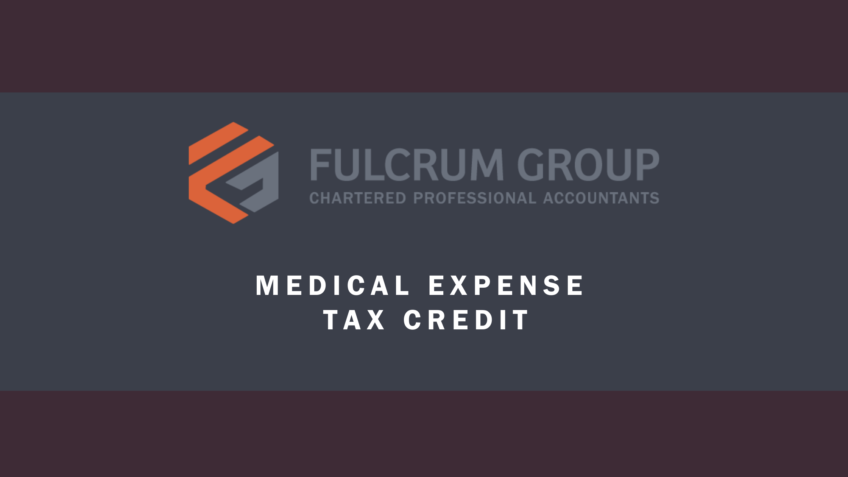Steps to Take Following Incorporation
So you’ve incorporated a company, now what??
1. Register for CRA Program Accounts
- Depending on the requirements of the corporation, the corporation should register for GST and Payroll accounts with the CRA. Our office can assist with identifying your specific needs regarding these accounts and registration when necessary.
2. Open a Corporate Bank Account
- After setting up a corporation, you need to open a bank account in the corporation’s name. This will allow you to properly segregate transactions that are directly related to the corporation such as business expenses and revenue.
- To open a corporate bank account, you should bring a copy of the articles of incorporation that you received when registering your corporation to the bank or credit union of your choice and ask to open a business bank account.
- To use the account effectively it is important to run only business-related expenses and revenue through the account. This will simplify the accounting process and help keep accounting bills as low as possible.
3. Apply for a Corporate Credit Card
- Applying for a corporate credit card is an important step for a corporation because using the corporate credit card for business expenses allows you to build the credit score of the corporation. Think of the corporation as it’s own person, separate from you as the owner. Having a positive corporate credit history will assist the corporation in any future financing that it requires.
- Further, credit cards often have benefits associated with them such as cashback rewards, travel reward points, and various other benefits that can be of benefit to the corporation.
- Should the corporation be unable to obtain a credit card, a personal credit card could be opened and designated only for business expenses to simplify the accounting process.
4. Company Records
- Any company records such as corporate registry documentation (articles of incorporation, company by-laws, shareholder agreements, annual returns, etc.) should be retained in a corporate minute book. This minute book can be held by your legal professional and should be updated every year.
- All receipts and invoices for the corporation should be kept for seven years. It is recommended to scan the documents into digital format and retain the PDF documents in case they are required at a future date. There are various cloud storage solutions available for this purpose (for more information contact our office).
5. Accounting & Bookkeeping
- When operating a corporation, it is important to choose an accounting system in which transactions can be recorded. There are various solutions for this; however, a cloud-based accounting system is preferred as it is more easily accessible by the shareholders of the company, bookkeepers, and accountants. For more information on cloud-based accounting solutions, please contact our office.
- Once an accounting system has been selected, corporate transactions should be recorded in a timely manner. This will allow greater visibility of the corporation’s financial state and can provide useful information for management to make decisions. This will also allow for timely remittance of source deductions and filing of GST returns, which will prevent interest and penalties from the CRA.
- You should also select an accountant to provide the appropriate financial services such as year-end tax return filing and financial statement preparation in addition to consulting and business planning opportunities.
6. Business-Related Expenses
- Any business-related expenses should be paid for through the corporate bank account or credit card. These include any costs that the company incurs in order to earn income. For assistance in determining which expenses are business expenses or not, contact our office.
- Further, any business expense that has been paid for personally by either shareholders or employees should be recorded separately and reimbursed by the corporation.
7. Vehicle Expenses
- Vehicle expenses can be treated two ways in a corporation, and it depends on the vehicle’s ownership.
- If the vehicle is owned personally by the shareholder, then all vehicle-related expenses such as repairs and maintenance, fuel, and insurance, registration, financing costs etc. should be incurred personally (not in the corporation) and an amount will be reimbursed based on the business use of the vehicle.
- To determine the amount of the reimbursement, CRA’s prescribed per kilometer rates are used in conjunction with a kilometer log that is maintained by the shareholder. Our office can provide a log template that can be used to track the business versus the personal use of the vehicle. This log should have the date, destination (from and to), purpose, and the number of kilometers for each business-related trip. Please keep in mind that travel from your home to your base of operations is not considered eligible business travel.
- If the vehicle is owned by the corporation (note that there must be a bill of sale in the corporation’s name and the vehicle must be insured, registered and available for use by the corporation), then any expenses related to the vehicle can be recorded directly in the corporation such as fuel, repairs and maintenance, insurance, registration, financing costs, etc.
- If the vehicle is used for personal travel, the personal travel should be logged and may arise in a taxable benefit to the shareholder.
8. Use of Home as Office
- If the shareholder’s personal residence is used for business purposes, the corporation can reimburse the shareholder for the business use of the personal residence.
- Our office can assist in determining the appropriate reimbursement.
9. Wages and Dividends
- It is important to consider how the shareholder will be paid by the corporation. The shareholder can either be paid wages or issued dividends or some combination of both wages and dividends.
- If the company pays wages, there will be associated payroll calculations that will occur based on the amount and frequency of payment (bi-weekly, monthly, etc.) with accompanying source deduction remittances that will have to be made to CRA (typically monthly). Our office can assist in these calculations.
- Dividends can be used effectively in tax planning situations and our office can also assist in this regard.
- If you have recently incorporated and are looking for guidance in any of the areas listed above, please contact our office for more assistance.




